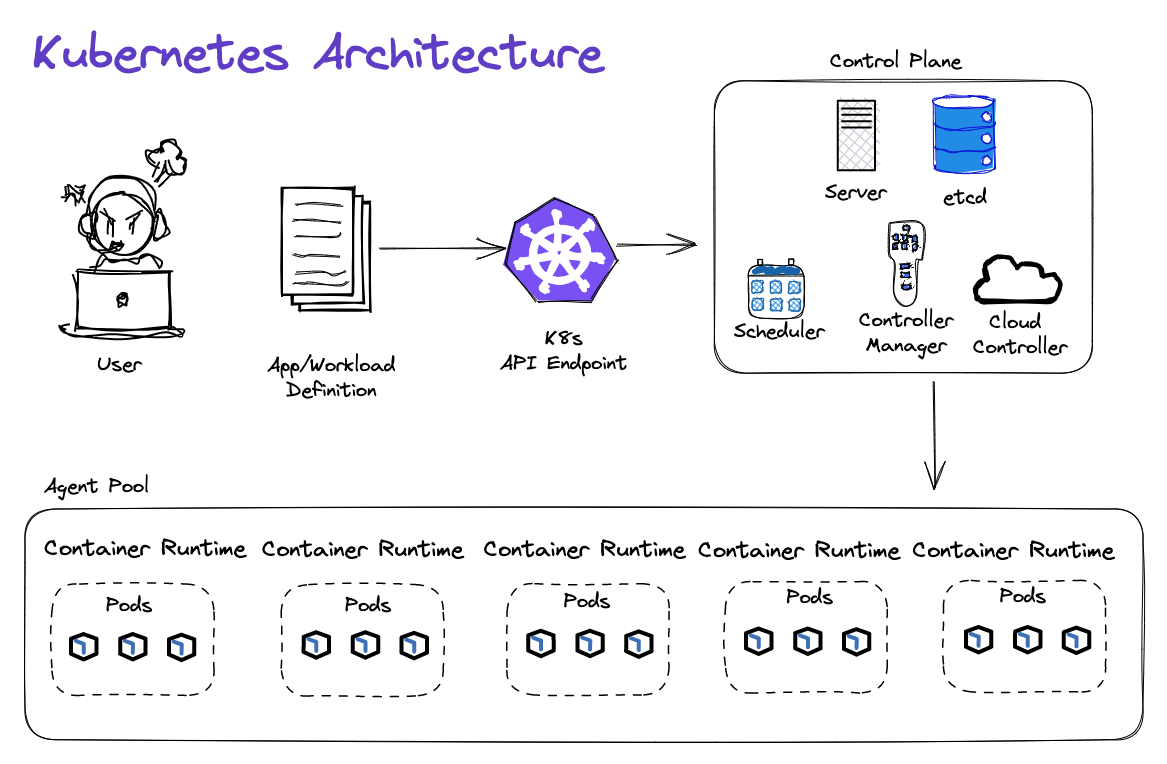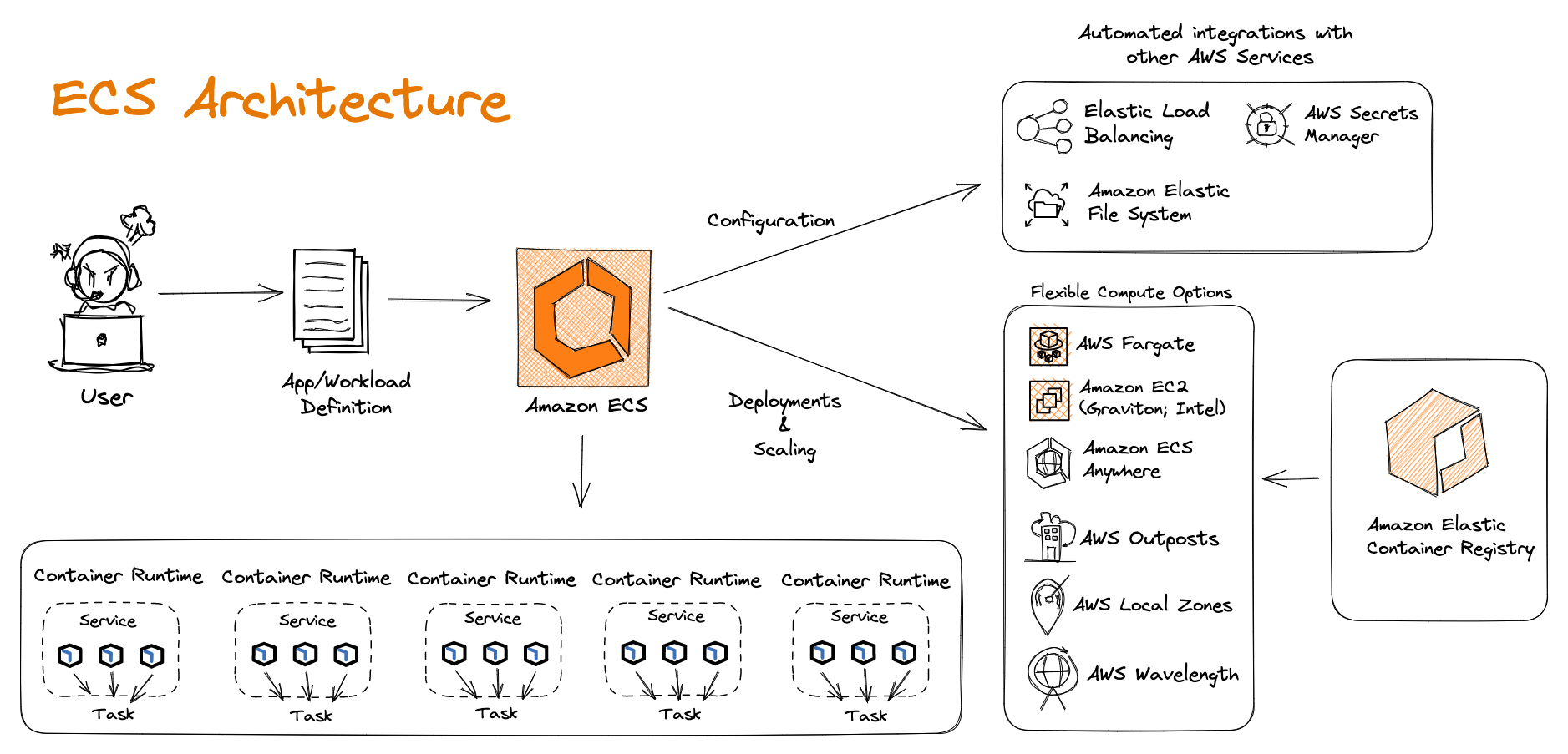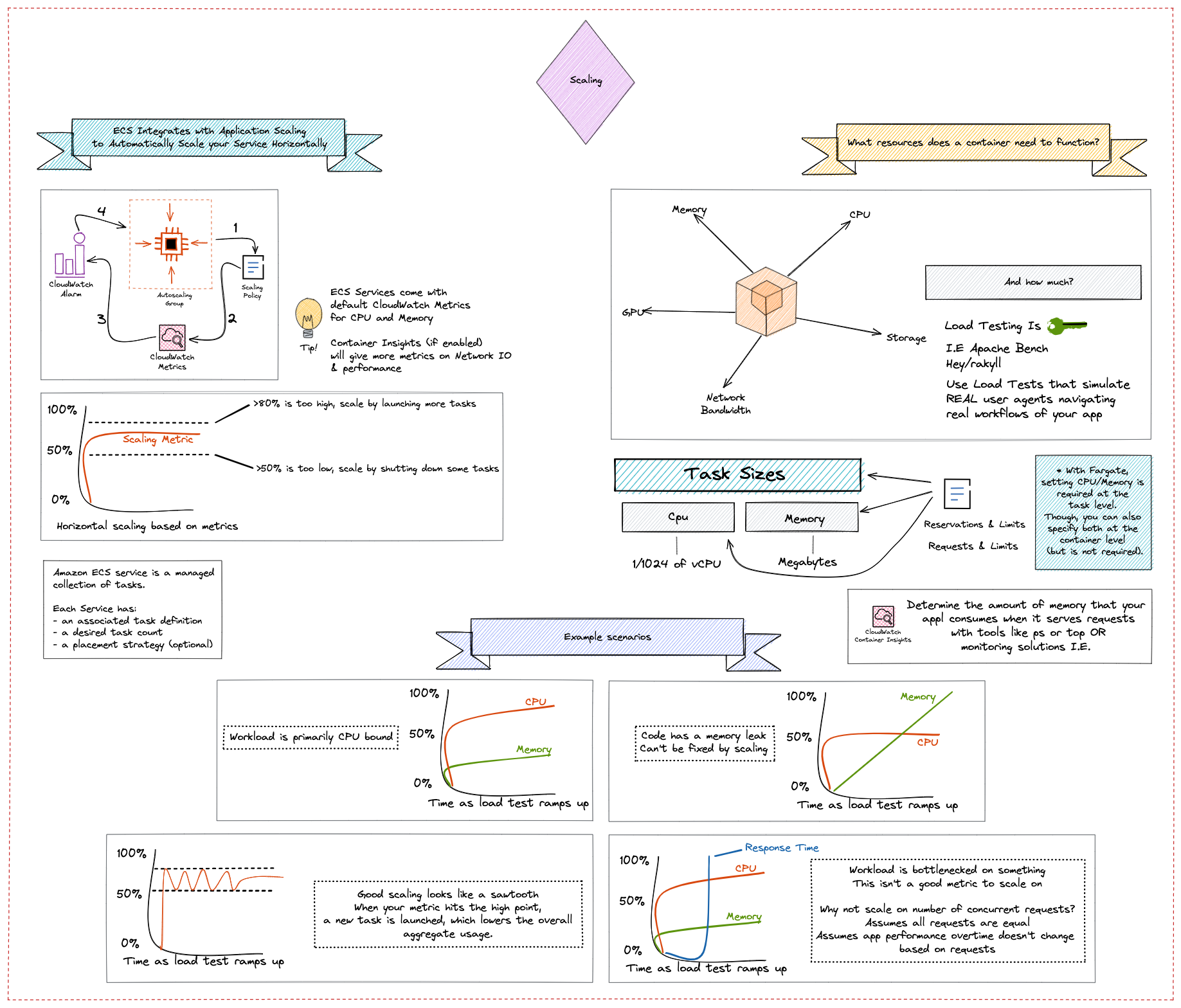
Kubernetes Architecture
Amazon Elastic Kubernetes Service (Amazon EKS) is a managed Kubernetes service to run Kubernetes in the AWS cloud and on-premises data centers. In the cloud, Amazon EKS automatically manages the availability and scalability of the Kubernetes control plane nodes responsible for scheduling containers, managing application availability, storing cluster data, and other key tasks. With Amazon EKS, you can take advantage of all the performance, scale, reliability, and availability of AWS infrastructure, as well as integrations with AWS networking and security services. On-premises, EKS provides a consistent, fully-supported Kubernetes solution with integrated tooling and simple deployment to AWS Outposts, virtual machines, or bare metal servers.

Amazon ECS Architecture
Amazon Elastic Container Service (Amazon ECS) is a fully managed container orchestration service that simplifies your deployment, management, and scaling of containerized applications. Simply describe your application and the resources required, and Amazon ECS will launch, monitor, and scale your application across flexible compute options with automatic integrations to other supporting AWS services that your application needs. Perform system operations such as creating custom scaling and capacity rules, and observe and query data from application logs and telemetry.

Container Platform Best Practices: Storage
You can use Amazon ECS to run stateful containerized applications at scale by using AWS storage services, such as Amazon EFS, Amazon EBS, or FSx for Windows File Server, that provide data persistence to inherently ephemeral containers. The term data persistence means that the data itself outlasts the process that created it. Data persistence in AWS is achieved by decoupling compute and storage services. Similar to Amazon EC2, you can also use Amazon ECS to decouple the lifecycle of your containerized applications from the data they consume and produce. Using AWS storage services, Amazon ECS tasks can persist data even after tasks terminate.

Container Platform Best Practices: Security
This visual provides security and compliance recommendations for protecting your information, systems, and other assets that are reliant on Amazon ECS. It also introduces some risk assessments and mitigation strategies that you can use to have a better grip on the security controls that are built for Amazon ECS clusters and the workloads that they support. Each topic in this guide starts with a brief overview, followed by a list of recommendations and best practices that you can use to secure your Amazon ECS clusters.


